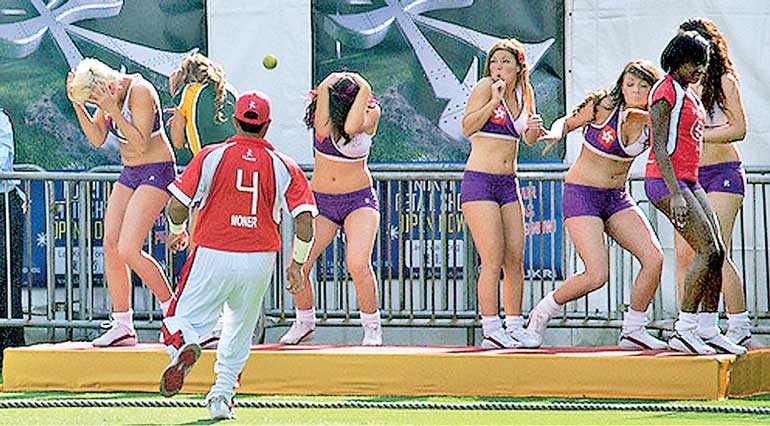Wednesday Feb 18, 2026
Wednesday Feb 18, 2026
Friday, 24 February 2017 00:00 - - {{hitsCtrl.values.hits}}
 AFP: A burgeoning Twenty20 tournament and growing interest from abroad is turning Hong Kong into one of Asia’s fastest-rising cricketing destinations - and could help the sport make inroads into mainland China.
AFP: A burgeoning Twenty20 tournament and growing interest from abroad is turning Hong Kong into one of Asia’s fastest-rising cricketing destinations - and could help the sport make inroads into mainland China.
Hong Kong’s T20 Blitz is approaching only its second edition but already it is attracting a number of well-known players, including Pakistan Test captain Misbah-ul-Haq and hard-hitting all-rounder Shahid Afridi.
The densely populated city has also been proposed as a possible venue for Australia’s successful Big Bash League, which boasts bumper crowds and TV ratings.
It is a surprising scenario for Hong Kong, given that it has few cricket grounds, only 795 registered senior male players and scant interest in the sport among its ethnic Chinese majority population.
But the former British colony could now make itself a centre in East Asia for Twenty20 cricket, which has already spawned the popular Big Bash, Indian Premier League and similar competitions elsewhere.
Tim Cutler, Cricket Hong Kong’s 34-year-old CEO, takes inspiration from rugby’s Hong Kong Sevens, whose success helped the sport return to the Olympics last year.
“Look at the Hong Kong Sevens,” Cutler told AFP.
“Hong Kong is not known for its sporting prowess but it can run international events. It’s an easy place to get things done. Outside, people are thinking, ‘How can we be part of that?’”
Former Australia captain Michael Clarke came out of retirement to be the sole star player at last year’s inaugural T20 Blitz, but he seems to have blazed a trail for Misbah, Afridi and others.
The next edition from 8-12 March will also feature the West Indies’ two-time World Twenty20-winning captain Darren Sammy, Sri Lanka legends Kumar Sangakkara and Tillakeratne Dilshan, England’s Tymal Mills and New Zealand batsman Jesse Ryder.
“To have that talent playing alongside local players, you can’t buy that kind of experience,” said Cutler.
“We’re the only associate (second-tier ICC member) to launch a franchise-based T20. There are lots of envious cricket federations around the world.”
Despite their lack of resources, Hong Kong have cricketing pedigree, after rising as high as 10th in the T20 rankings and beating Bangladesh in Chittagong at the 2014 World Twenty20.
Last year, Hong Kong also agreed with China, South Korea and Japan to hold a biennial East Asia Cup, with the first edition played in November.
“It’s about carving a niche for us in East Asia,” Cutler said.
The big prize for Hong Kong, and the International Cricket Council, lies in mainland China, whose only cricket ground sits not far across the border in the sprawling city of Guangzhou.
The ICC describes the Asian giant as a “strategic priority” and says it is working with the China Cricket Association on ways to “achieve sustainable growth in one of the most complex and competitive sports markets in the world”.
China has 52 teams, according to the Asian Cricket Council, and the ICC puts current participation figures at 80,285, including 36,000 women and girls.
Asian Cricket Council chief executive Syed Ashraful Haque has said global revenues for the sport could increase by 30-40% if China became an established cricketing nation.
Cutler said: “If China were to take up cricket, if it picked up by just one percent, you’re talking about a potentially huge market.
“The T20 gives us the potential of growing our audience in China and beyond, expanding into China and acting as a go-between.”
Afridi, who next month will skipper the Kowloon Cantons, one of five teams at the T20 Blitz, said he was excited by the opportunity of bringing cricket to new audiences.
“T20 is a good format for introducing cricket to people who don’t know it,” he told AFP from Pakistan.
“People in such places don’t have time for a one-day international or a Test. As a professional cricketer when someone approaches you, you go there and you help cricket in that place.”